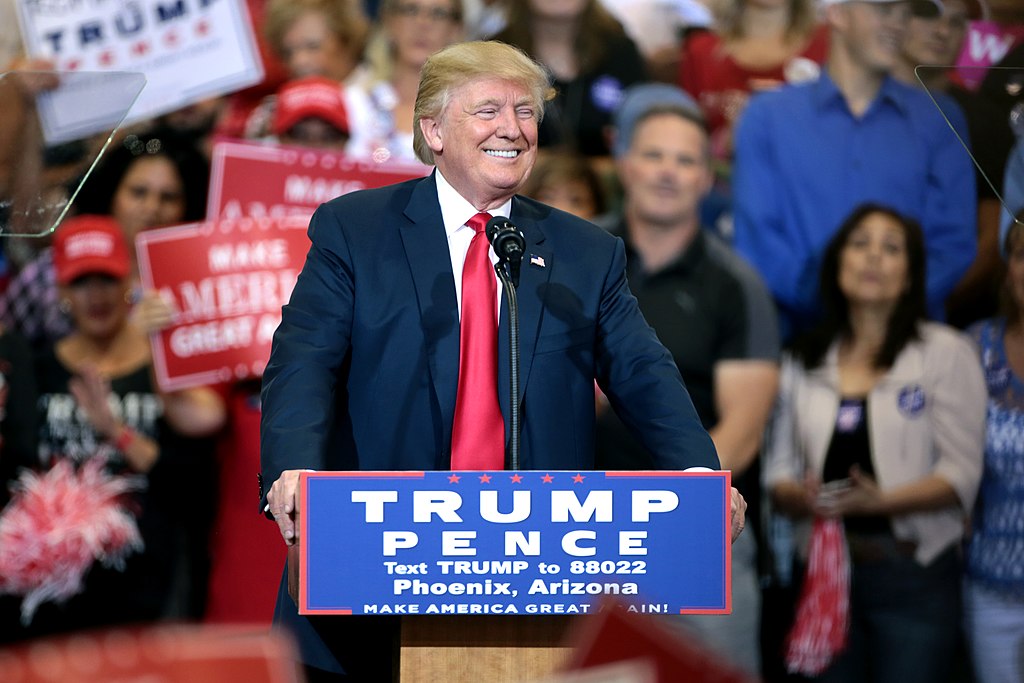As President-elect Donald Trump prepares to take office in January 2025, a renewed focus on supporting military veterans’ mental health has emerged as a cornerstone of his administration’s agenda. With growing concerns over suicide rates, PTSD, and limited access to healthcare, Trump’s team aims to expand services for veterans while addressing the systemic challenges in mental health care for those who served in the armed forces.
In his campaign, Trump emphasized the urgent need to tackle veterans' mental health issues, promising comprehensive reforms. His strategy includes bolstering resources for the Department of Veterans Affairs (VA), increasing funding for counseling programs, and introducing public-private partnerships to expand access to mental health services. These measures, according to Trump’s team, will provide a lifeline for veterans in crisis.
However, critics are questioning whether these plans will truly address the root causes of the mental health crisis among veterans or merely scratch the surface. Some argue that Trump’s proposals lack specificity and fail to confront long-standing bureaucratic hurdles within the VA.
Key Reforms to Address the Crisis
Trump’s plan hinges on two primary pillars: enhancing VA mental health resources and fostering collaboration with private organizations. His administration intends to allocate additional funding to hire more therapists, expand telehealth options, and reduce wait times for appointments. These efforts aim to ensure that veterans receive timely and effective care, especially those in rural areas who often face barriers to accessing services.
Additionally, Trump has proposed incentivizing private healthcare providers to offer mental health services tailored to veterans’ needs. His team is exploring partnerships with nonprofits and tech companies to develop innovative approaches, such as mobile apps for crisis intervention and AI-powered mental health assessments.
While these reforms have garnered praise from some advocacy groups, others remain skeptical. Critics contend that similar initiatives in Trump’s previous term yielded mixed results, citing ongoing complaints about understaffed VA facilities and bureaucratic inefficiencies.
Public Reaction and Divided Opinions
Trump’s announcement has ignited a fiery debate online, with social media users weighing in on the effectiveness of his proposed policies:
- @VeteranSupporter2025: “Finally, someone is taking veterans’ mental health seriously! Trump’s plan gives us hope for real change.”
- @HealthAdvocateUSA: “The VA is still broken. Promises won’t fix the backlog of veterans waiting for care.”
- @PatriotForVets: “Trump’s partnerships with private companies could revolutionize care. We need to think outside the box!”
- @CriticalThinker: “Throwing money at the VA isn’t enough. We need systemic reform, not Band-Aid solutions.”
- @PTSDAdvocate: “Telehealth options are great, but what about veterans without internet access? Rural areas need in-person care too!”
- @PolicyAnalyst2025: “Trump’s plan sounds good on paper, but we’ve heard this before. Will anything really change?”



 Argentina Senate Approves Bill to Lower Age of Criminal Responsibility to 14
Argentina Senate Approves Bill to Lower Age of Criminal Responsibility to 14  Trump Floats Ted Cruz for Future U.S. Supreme Court Nomination
Trump Floats Ted Cruz for Future U.S. Supreme Court Nomination  Trump Floats “Friendly Takeover” of Cuba as Rubio Reportedly Engages in Talks
Trump Floats “Friendly Takeover” of Cuba as Rubio Reportedly Engages in Talks  Netanyahu Suggests Iran’s Supreme Leader Khamenei May Have Been Killed in Israeli-U.S. Strikes
Netanyahu Suggests Iran’s Supreme Leader Khamenei May Have Been Killed in Israeli-U.S. Strikes  Trump to Address Nation as U.S. Launches Strikes in Iran, Axios Reports
Trump to Address Nation as U.S. Launches Strikes in Iran, Axios Reports  NYC Mayor Zohran Mamdani Meets President Trump to Tackle Housing Crisis and ICE Detentions
NYC Mayor Zohran Mamdani Meets President Trump to Tackle Housing Crisis and ICE Detentions  U.S.-Iran Nuclear Talks Show Progress but No Breakthrough Amid Rising Military Tensions
U.S.-Iran Nuclear Talks Show Progress but No Breakthrough Amid Rising Military Tensions  Russia Signals Openness to U.S. Security Guarantees for Ukraine at Geneva Peace Talks
Russia Signals Openness to U.S. Security Guarantees for Ukraine at Geneva Peace Talks  Trump Media Weighs Truth Social Spin-Off Amid $6B Fusion Energy Pivot
Trump Media Weighs Truth Social Spin-Off Amid $6B Fusion Energy Pivot  Venezuela Oil Exports to Reach $2 Billion Under U.S.-Led Supply Agreement
Venezuela Oil Exports to Reach $2 Billion Under U.S.-Led Supply Agreement  U.S.-Israel Strike on Iran Escalates Middle East Conflict, Trump Claims Khamenei Killed
U.S.-Israel Strike on Iran Escalates Middle East Conflict, Trump Claims Khamenei Killed  Federal Judge Blocks Virginia Social Media Age Verification Law Over First Amendment Concerns
Federal Judge Blocks Virginia Social Media Age Verification Law Over First Amendment Concerns  Israel Launches Fresh Strikes on Iran After Death of Supreme Leader Ayatollah Khamenei
Israel Launches Fresh Strikes on Iran After Death of Supreme Leader Ayatollah Khamenei  HHS Adds New Members to Vaccine Advisory Panel Amid Legal and Market Uncertainty
HHS Adds New Members to Vaccine Advisory Panel Amid Legal and Market Uncertainty  Dominican Republic Unveils Massive Rare Earth Deposits to Boost High-Tech and Energy Sectors
Dominican Republic Unveils Massive Rare Earth Deposits to Boost High-Tech and Energy Sectors  Pentagon to Halt Ivy League Programs for U.S. Military Officers Starting 2026
Pentagon to Halt Ivy League Programs for U.S. Military Officers Starting 2026  Australian PM Calls Alleged Western Australia Terror Plot “Deeply Shocking” After Arrest
Australian PM Calls Alleged Western Australia Terror Plot “Deeply Shocking” After Arrest 
































